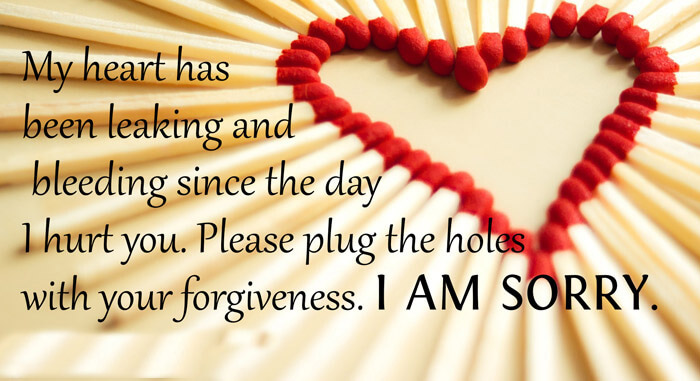Exploring the Meaning of Love and Apology

I love you im sorry – The phrases “I love you” and “I’m sorry” hold immense power, conveying a spectrum of emotions and carrying profound significance in human interactions. Their meanings are not static but rather fluid, shaped by cultural norms, personal experiences, and the intricate tapestry of human relationships.
The heart’s unspoken words, “I love you, I’m sorry,” resonate with the bittersweet melody of tough love. Like Gracie Abrams’s song, it’s a testament to the complexities of relationships, where love and regret intertwine. The unspoken words, like a gentle breeze, carry both the longing and the weight of apology, leaving a poignant echo in the soul.
Cultural and Contextual Factors
The cultural context in which these expressions are uttered significantly influences their interpretation. In some cultures, “I love you” is reserved for romantic relationships, while in others, it is freely expressed among family and friends. Similarly, the weight of an apology can vary depending on the cultural norms surrounding accountability and forgiveness.
In the hushed whispers of “I love you, I’m sorry,” a smoky haze weaves its way through the air, like the lyrics of a haunting melody. Blowing Smoke echoes through the silence, carrying with it the weight of broken hearts and shattered dreams.
Yet, amidst the lingering sorrow, there’s a flicker of hope, a reminder that even in the depths of despair, love can find its way back home.
Emotional and Psychological Significance
Expressing love and apology serves important emotional and psychological functions. Love is a complex emotion that encompasses affection, intimacy, and a deep connection. Verbalizing love can strengthen bonds, provide reassurance, and foster a sense of belonging. Apology, on the other hand, is a form of emotional repair that acknowledges wrongdoing, seeks forgiveness, and aims to restore harmony in relationships.
When you say “i love you im sorry,” you’re not just apologizing for something you did wrong. You’re also expressing your love for the person you’re apologizing to. It’s a way of saying that you care about them and that you want to make things right.
i love you im sorry is a powerful phrase that can help to heal relationships and bring people closer together.
The Role of Love and Apology in Relationships

In the tapestry of human relationships, love and apology intertwine like threads, weaving a vibrant and intricate pattern. Expressions of love serve as affirmations, fostering connection and deepening bonds, while apologies mend broken trust, heal wounds, and pave the way for reconciliation. Understanding the profound impact of these two elements is crucial for navigating the complexities of relationships.
Sincerity, Timing, and Context
The sincerity of an apology is paramount. It should stem from genuine remorse and a deep desire to make amends. Apologies delivered out of obligation or to avoid conflict are often perceived as insincere and may further damage the relationship. The timing of an apology is also crucial. It should be delivered promptly, allowing the offended party time to process their emotions and avoid festering resentment. The context in which an apology is given is equally important. A private setting, free from distractions and judgment, allows for open and honest communication.
Consequences of Withholding or Misinterpreting Expressions, I love you im sorry
Withholding or misinterpreting expressions of love and apology can have devastating consequences. Unexpressed love can lead to feelings of neglect and insecurity, while withholding an apology can perpetuate conflict and damage the relationship irreparably. Misinterpreting an apology can also lead to misunderstandings and further hurt. It is essential to approach these expressions with open hearts and minds, seeking to understand the intent behind the words and actions.
Creating Content with HTML Table Tags: I Love You Im Sorry

To present the information related to “I love you” and “I’m sorry” in a well-organized and easily accessible manner, we can utilize the HTML table tags.
By creating a table with different columns, we can categorize the information based on its meaning, context, and impact. This will allow us to explore the nuances and complexities of these two phrases in a structured and comprehensive way.
HTML Table Design
The HTML table will consist of the following columns:
- Phrase: This column will contain the phrases “I love you” and “I’m sorry.”
- Meaning: This column will provide the denotative and connotative meanings of each phrase.
- Context: This column will explore the different contexts in which these phrases are typically used.
- Impact: This column will examine the potential emotional and psychological impact of each phrase.
The table will be formatted using appropriate CSS styles to enhance its readability and accessibility. This will ensure that the information is presented in a clear and visually appealing manner.
In the tapestry of life, love and regret often dance hand in hand. As we navigate the complexities of relationships, words like “I love you” and “I’m sorry” become threads that bind and unravel our hearts. Yet, even in the depths of despair, there is always a flicker of hope, a glimmer of redemption.
Just like in the beloved television series Good Luck Charlie , where laughter and tears intertwine, we find solace in the resilience of the human spirit. For in the tapestry of love, forgiveness can mend broken threads, and even the most heartfelt apologies can become a bridge to a brighter future.
In the symphony of love, “I love you, I’m sorry” whispers through the notes, carrying both joy and regret. Like the ethereal melodies of Free Now by Gracie Abrams , these words dance between the heartstrings, reminding us of the bittersweet tapestry of human connection.
“I love you” paints the canvas with vibrant hues, while “I’m sorry” adds a touch of somber elegance, a testament to the complexities of our emotions.